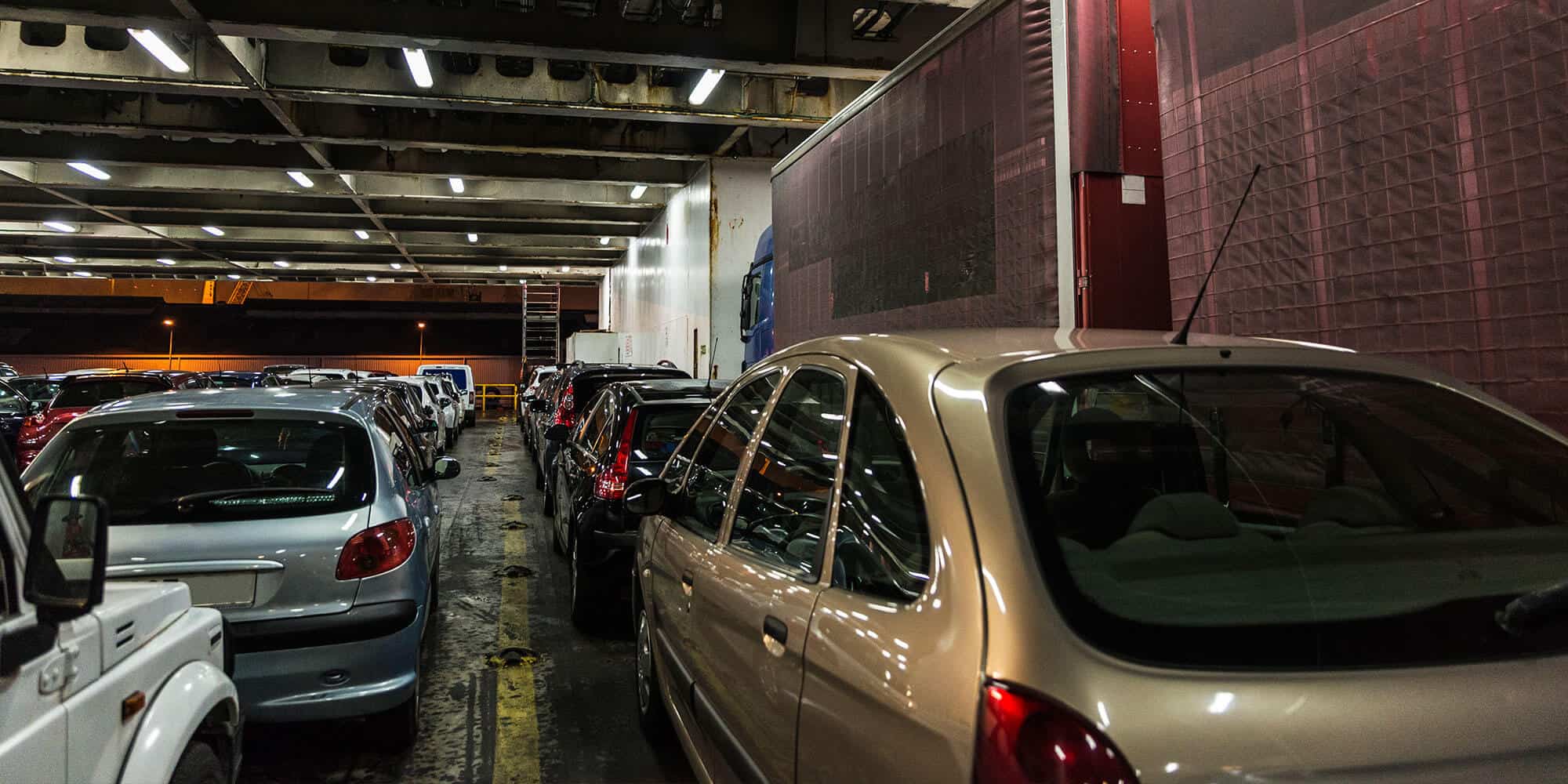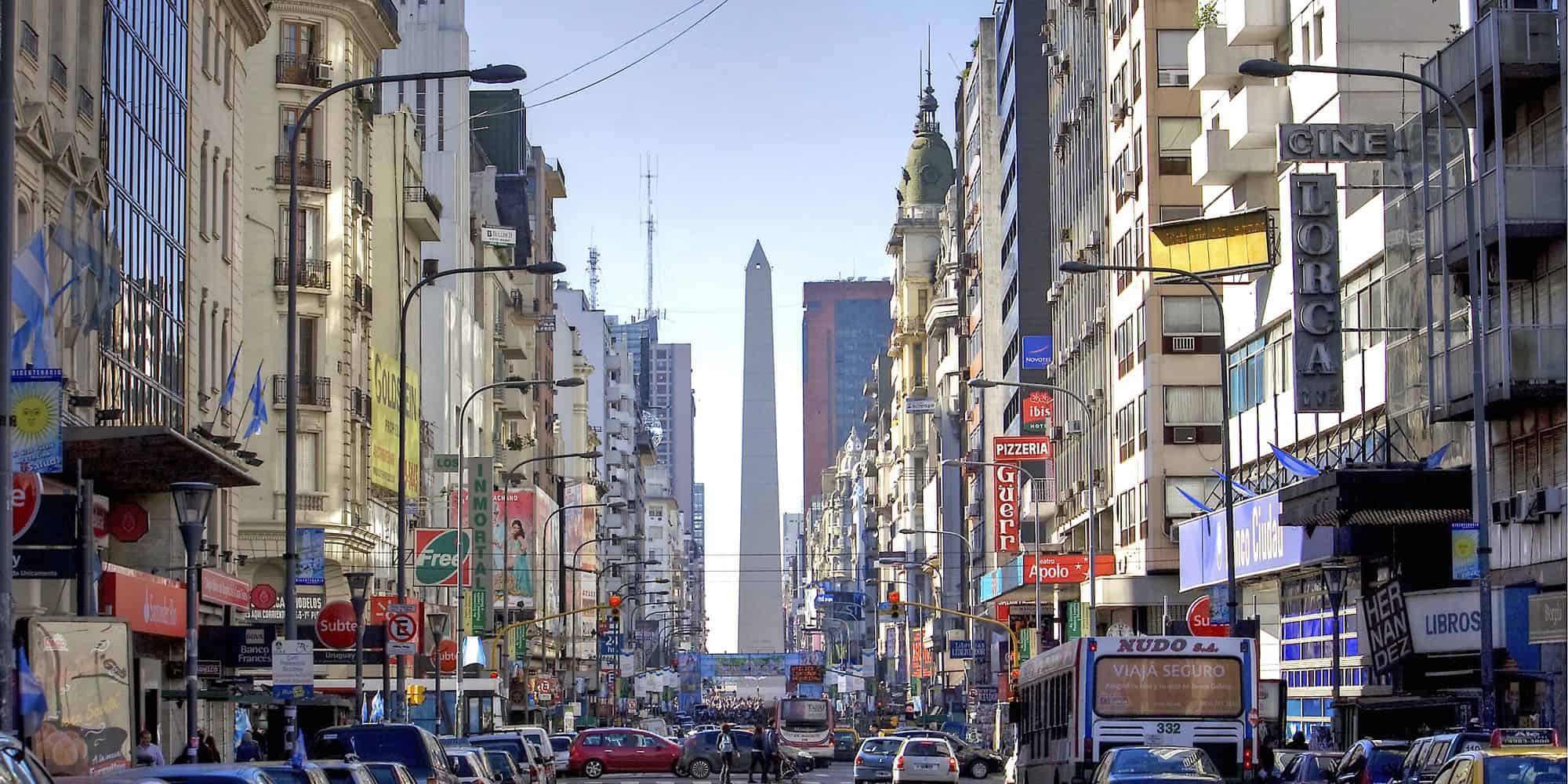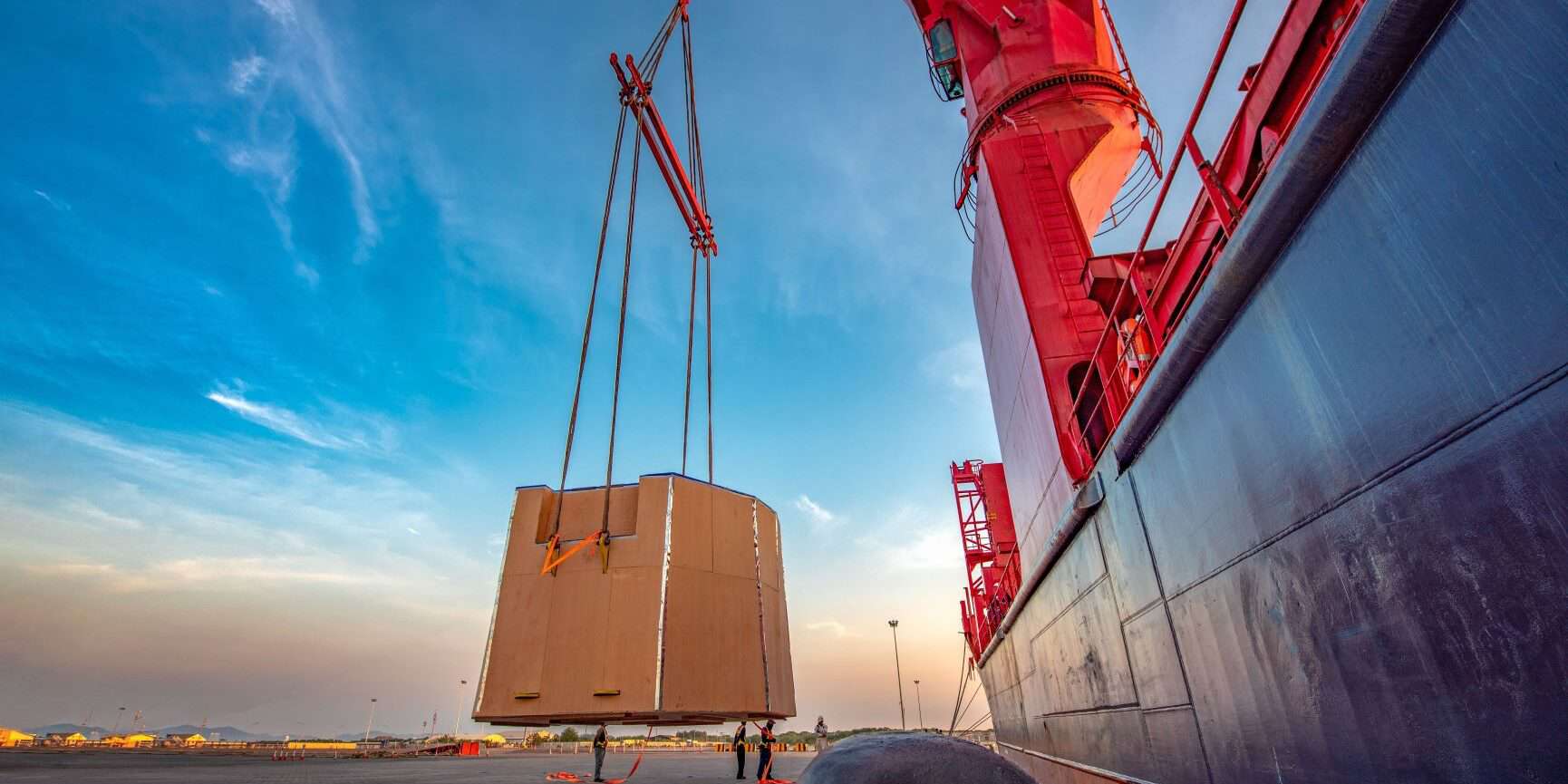Are you looking to expand your business into new Latin American Markets? If you are interested in exporting to El Salvador, our shipping specialists can assist you.
Find out everything you need to know about exporting to El Salvador in our concise and informative guide, and then trust Latin American Cargo to make it happen. We are experts in getting your goods where they need to go, fuss and stress-free.
Nestled between Guatemala and Honduras, El Salvador is the smallest country in Central America – smaller than Massachusetts – but the opportunities are big. Its six million people value North American goods and services, thus, you may find it relatively easy to enter this market.
The country is highly industrialized, big on tourism, and has taken significant steps to reduce poverty and inequality. These factors, coupled with major infrastructure investment and beneficial trade and customs agreements, are setting El Salvador on course to be an economic hub for the region.
Business opportunities to consider when exporting to El Salvador
Why El Salvador is attractive to North American and European exporters?
- Its strategic location: The country is logistically attractive thanks to its proximity to the U.S. and its ongoing investment in transportation infrastructure.
- Its dollarized economy: The adoption of the U.S. dollar has eased the headache of transaction costs and reduced exchange rate risk for businesses.
- Its financial advantages: with several free-trade agreements meaning no or low tariffs for importers and exporters.
El Salvador’s Free Trade Agreements
In terms of trade incentives, U.S. exporters have gained a significant advantage in the Salvadoran market thanks to the CAFTA-DR free trade agreement – a bilateral agreement between the USA and El Salvador, Dominican Republic, Costa Rica, Guatemala, Honduras, and Nicaragua. Through CAFTA-DR, many companies benefit from 97% of goods entering tariff-free, coupled with a simplified customs process.
Other countries also benefit from free-trade agreements with El Salvador, including those in the European Union, the U.K, Korea, and Taiwan.
While El Salvador and Canada are yet to establish a free trade agreement, negotiations have taken place and are likely to continue.
Key sectors for exports to El Salvador
Tariff-free exports to El Salvador aren’t the only benefits of free trade agreements; they also give access to government procurement, infrastructure, and investment opportunities. These include the construction of ports, airports, roads, bridges, hospitals, and waste and treatment facilities.
Foreign exporters have also identified the following growth sectors as having tremendous potential:
- Specialized textiles and apparel
- Tourism
- Aeronautics
- Agro-industry
- Medical devices
- Light manufacturing
- Renewable energy sources
Top exports to El Salvador
With the USA being El Salvador’s leading trade partner, the country presents many opportunities for U.S.-based companies looking for new markets in Central America.
U.S. imports to the country totaled $4.1bn in 2021, and more than a third (37.8%) of all Salvadoran exports in 2020 were USA-bound.
Guatemala, Honduras, and China are also significant trade partners. China is El Salvador’s second-largest source of imports and its largest non-American-based market, receiving just over 3% of Salvadoran exports in 2020.
Energy-related goods dominate the top of El Salvador’s import list. According to the United Nations COMTRADE database, compiled by Trading Economics, El Salvador’s top ten imports in 2021 were:
- Refined petroleum ($2.83 billion)
- Machinery ($1.18 billion)
- Plastics ($1.11 billion)
- Electrical machinery and electronic equipment ($1.10 billion)
- Motor vehicles ($924 million)
- Iron and steel ($590 billion)
- Medicinal and pharmaceutical products ($577 million)
- Knit and apparel (527 million)
- Animal and vegetable fat and oil ($303 million)
- Cotton ($294 million)
Challenges to consider when exporting to El Salvador
Entering a new trade environment such as El Salvador can present a number of challenges, which include:
- A regulatory environment that is rapidly changing. Regulations can be imposed at short notice.
- Lack of transparency in policy and judicial decision-making.
- Customs regulations applied inconsistently, with the potential for delays and fines. Measures are being introduced to improve the process.
- Insufficient advance notice of procurements, short timelines to submit tenders, and results that aren’t always transparent.
Import restrictions and prohibitions
El Salvador does have a significant number of prohibitions and restrictions on imports. Some, like those relating to firearms, may be expected. Others may surprise you.
Items prohibited for import into El Salvador include:
- Certain high-caliber firearms*
- Material such as books and posters deemed to undermine the country’s political, economic, and social order
- Obscene materials, including figures, magazines, and photographs
- Movies contrary to ethics and good behavior
- Abortion-related medication or equipment
- Opium with less than 9% morphine, scraps, and opium ash, and any material used for smoking them.
- Non-stamped white or colored paper for cigarettes
- Materials and equipment associated with counterfeiting, such as coin-making machines and tools, counterfeited coins and bills, plain silver coins of less than 0.90 purity, and tokens that may be used as legal coin substitutes.
- Motor vehicles older than eight years and buses and trucks more than 15 years old
Some goods may be imported but are subject to strict controls. These include:
- Arms for personal defense or hunting
- Gambling machines, wheels, and tables
- Opiates, and barbiturates for medical use
There are also some goods that can only be imported by the government. These include:
- Military airplanes, ships, and gas masks
- Potassium nitrate
- Stamped paper for making cigarettes
- Postage stamps
- Nickel coins for legal circulation
If you doubt the legality of your product for import or the rules around it, we advise seeking guidance from a reputable customs broker.

Located on the Pacific Ocean, Acajutla is the largest international port of El Salvador.
Export to El Salvador: Customs clearance
El Salvador is working to harmonize its customs procedures with its neighbors under the Central American Uniform Customs Code (CAUCA).
CAUCA aims to boost prosperity by supporting the free movement of goods through simplified documentation and a speedier customs process.
Exporters already doing business in Central America may find El Salvador to be a smart choice. Not only does the country offer the comfort of familiar customs processes but also a ‘low or no tariff’ incentive thanks to its range of free trade agreements, as mentioned previously.
Customs Duties
If you are a U.S. exporter, the CAFTA-DR free trade agreement may be a real incentive to choose El Salvador over other markets.
The agreement allows all U.S. consumer and industrial goods to enter duty-free, as well as textile and apparel goods that meet specific origin requirements.
In addition, most U.S. agricultural products can already enter duty-free. But import quotas and 40% duties on rice and pork currently remain, with El Salvadorans required to buy locally before resorting to imports.
The remaining tariffs on rice, yellow corn, and chicken leg quarters will end in 2023, and those on dairy products by 2025. Pork tariffs are also being phased out.
There is an external tariff set at a maximum of 15% for most items not covered by CAFTA-DR.
In addition, El Salvador applies an excise tax specifically to distilled spirits. The lowest rate applies to aguardientes – a locally bottled spirit made from cane sugar, and the highest to Whiskey, which is 100% imported.
If you want to know the import tariff for a product bound for El Salvador, or if there are any import restrictions or permits required, visit the Customs Authority website. Alternatively, there is a one-stop service for import applications.
Import requirements and documentation
In most cases, Salvadoran customs does not require import licenses, just a commercial invoice and bill of lading. However, other documentation may be required depending on the product.
- A sanitary certificate for fresh food, agricultural commodities, and live animals from the Ministry of Agriculture and the Ministry of Public Health
- An import license for basic grains from the Ministry of Agriculture
- An import license for dairy products from the Ministry of Public Health
- Registration of pharmaceuticals, medical equipment, medical devices, nutritional supplements, dental, cosmetics, and hygiene products with the National Directorate of Medicines
- A Certificate of Free Sale showing approval by U.S. health authorities for public sale
Complexities in the system have delayed some products getting to market. Many of these are being addressed. Issues include:
- Cyclical challenges – a health certificate is needed for food product registration, but these only accompany shipments of meat and meat products which can only travel once the product is registered.
- Extensive laboratory tests are required for all new food products intended for sale in El Salvador, creating a backlog in processing new product registrations and renewals.
- Grain shipments to El Salvador must be fumigated at importers’ expense unless official U.S. documentation certifies that it is free of weed seeds and fungus. However, there is no effective chemical treatment that exists to guarantee it.
Modes of transportation to and within El Salvador
The legacy of war, earthquakes, rainy seasons, and a growing population, have created a challenging backdrop for infrastructure improvements – a challenge that El Salvador is rising to.
Maritime Facilities
El Salvador’s Pacific coastline is more than 300km long, with several ports along its route.
Acajutla is one of El Salvador’s key commercial hubs and is home to the country’s most strategically important port. Managed by the Executive Commission of Autonomous Port (CEPA), it is suited to heavy container ships, it handles most of the country’s coffee, sugar, and Peru balsam exports. An expansion project is underway to modernize the port and quadruple its capacity.
In 2012, El Salvador opened its new southern port, Port of La Unión, which reflects its maritime investment. While it can handle Post Panama class container ships, it’s still far from capacity. Construction of a new airport and rail network will release El Salvador’s full potential.
Interestingly, El Salvador is the only Central American country without a Caribbean coastline. This affects its ability to get goods to swathes of South America quickly and efficiently. In an unprecedented move, Guatemala has offered El Salvador the opportunity to explore building a port on its Atlantic coast in El Arnel.
Airport infrastructure
El Salvador’s main airport is in its capital San Salvador. A project is underway to boost the capacity of the cargo terminal, increase the throughput of imports and exports and help establish the region as a logistics hub. By the end of the first phase, the airport will be able to handle 47,000 metric tons of cargo annually, and 73,000 by the end of the second phase.
Meanwhile, plans are afoot for a new airport in the east of El Salvador. The Pacific Airport would look to strengthen the region’s economy, channel growing tourism demand and raise the profile of the Port of La Unión.
Road network
El Salvador has a reputation for having some of the best highways and thoroughfares in Central America. The Pan-American Highway, the coastal highway, and the north longitudinal highway are its main arteries; they connect the country’s major cities and El Salvador with neighboring Guatemala and Honduras.
Los Chorros project aims to widen the coastal route and upgrade the Pan-American Highway through safety and capacity improvements. It will include eight-lane sections, including a viaduct – the most complex bridge section ever built in El Salvador.
Rail transport
El Salvador currently lacks a functioning railroad network, despite occasional passenger services operating over the past few decades.
However, a potentially transformational project is underway. A law was passed in spring 2022 to allow construction to start on the Pacific Railway – a passenger and freight network more than 500km long linking the ports of Acajutla and La Unión, crossing San Salvador. The vision is for it to extend to El Salvador’s borders and even beyond, supporting a rail resurgence across Central America.
Export to El Salvador now!
Get ready to enter a whole new market! Let us do the heavy lifting, getting your goods to El Salvador efficiently and stress-free. Our logistics expertise and market insights mean we can offer flexible freight forwarding services to suit you.
Latin American Cargo is your specialist El Salvador logistics partner. Get in touch today!


 LAC Team
LAC Team


